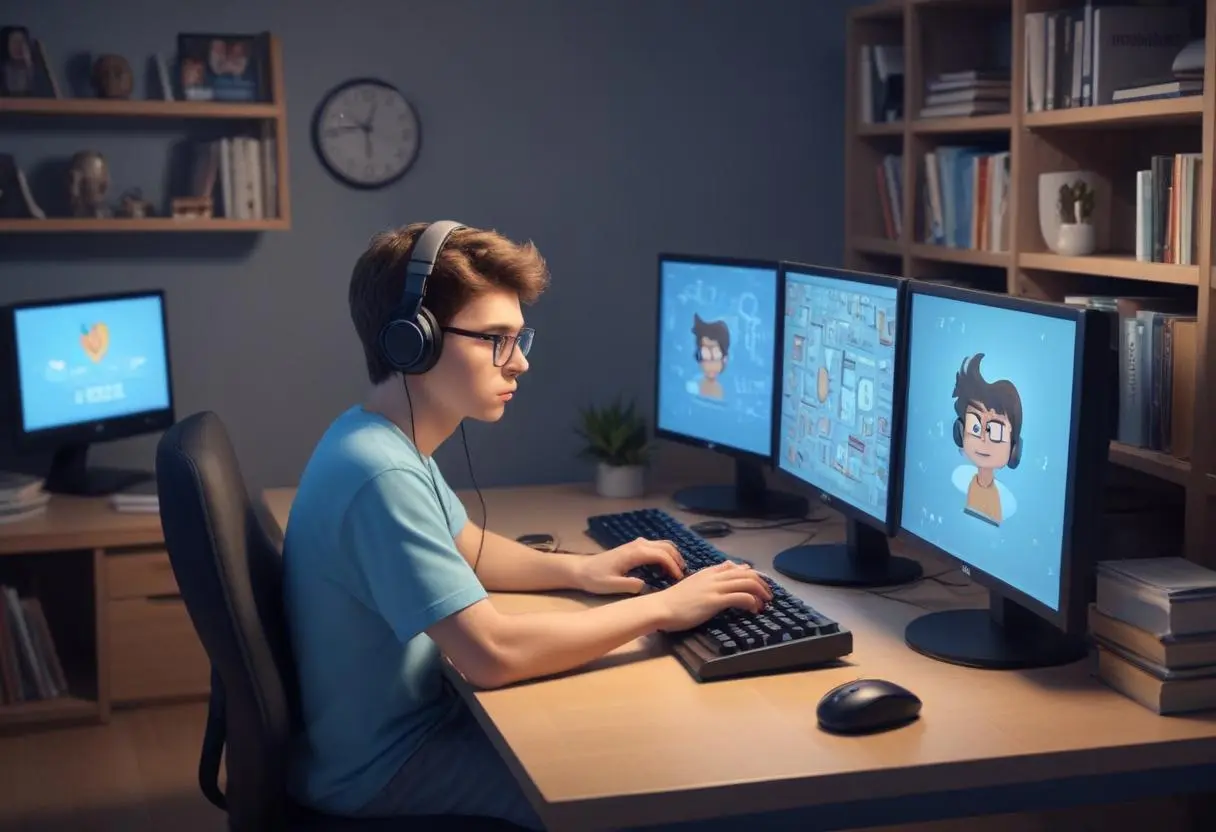Are you excited about taking your career in the gaming industry to the next level? The gaming world is evolving super fast, and the demand for top-notch skills is growing. Whether you’re a developer, artist, or designer, knowing which skills are hot right now can give you a serious advantage. Let’s dive into the most in-demand skills in gaming today.
1. Programming Skills
Programming is the core of game development. Mastering key programming languages and tools is essential for any aspiring game developer. Here’s what you need:
Languages
- C++: Known for its performance and efficiency, C++ is a staple in game development, especially for AAA games. It’s the language behind many game engines and is crucial for developing complex game mechanics and high-performance games.
- Python: Often used for scripting and rapid prototyping, Python is appreciated for its simplicity and versatility. It’s also popular for developing tools and pipelines in game production.
- C#: The primary language for Unity, C# is essential for developing games on this widely used engine. Its ease of use and integration with Unity make it a must-know for aspiring game developers.
- JavaScript: With the rise of browser-based and mobile games, JavaScript has become increasingly important. Understanding JavaScript and HTML5 frameworks like Pixi.JS or Phaser can open up opportunities in web game development.
Game Engines
- Unity: One of the most popular game engines, Unity is known for its flexibility and extensive community support. It’s used for everything from indie games to large-scale productions.
- Unreal Engine: Renowned for its stunning graphics and robust features, Unreal Engine is favored for high-fidelity and immersive games. It’s particularly popular in the AAA game development space.
- HTML5 Frameworks: Frameworks like Pixi.JS and Phaser are crucial for developing browser-based games. They enable developers to create interactive and engaging games that run smoothly on web browsers.
2. Game Design
Creating fun and engaging games is the heart of game design. It requires a blend of creativity, technical knowledge, and a deep understanding of player behavior. Here are the key skills:
Storytelling and Narrative Design
A compelling story can make a game memorable. As a game designer, you need to craft narratives that draw players in and keep them engaged. This involves creating interesting characters, intricate plots, and immersive worlds.
Player Psychology and Game Mechanics
Understanding what makes games enjoyable and addictive is crucial. This involves studying player behavior, designing mechanics that enhance engagement, and balancing challenges and rewards to keep players hooked.
3. Art and Animation
Visuals play a significant role in gaming. Stunning graphics and smooth animations can significantly enhance a game’s appeal. Here’s what you need to know:
2D/3D Animation Software
- Maya and Blender: These are industry-standard tools for 3D modeling and animation. Mastering them allows you to create detailed characters, environments, and animations that bring games to life.
Graphic Design Tools
- Photoshop and Illustrator: Proficiency in these tools is essential for creating game assets, including textures, user interfaces, and promotional materials. They are also used for concept art and illustrations.
4. Sound Design
Sound is a critical component of the gaming experience. It enhances immersion and can evoke emotions, set the tone, and provide feedback to players. Important skills include:
Creating Immersive Audio
Designing soundscapes that enhance the gameplay experience is crucial. This involves creating background music, sound effects, and voiceovers that complement the game’s visuals and narrative.
Sound Editing Software
- Pro Tools: This industry-standard software is essential for editing and mixing audio. Proficiency in Pro Tools allows you to create high-quality soundtracks and sound effects.
5. Quality Assurance (QA)
QA ensures that games are smooth, bug-free, and enjoyable to play. It involves meticulous testing and debugging to deliver a polished final product. Here’s what you need:
Attention to Detail
Being detail-oriented is crucial for identifying and fixing bugs. QA testers need to meticulously go through game elements, from graphics to mechanics, to ensure everything works as intended.
QA Automation
Understanding the processes and tools for QA automation is beneficial. Automation can streamline testing processes, making it faster and more efficient to identify and resolve issues.
6. Project Management
Managing game projects requires strong organizational and leadership skills. Key skills include:
Agile and Scrum
Understanding these methodologies is essential for managing game development projects. They emphasize iterative development, team collaboration, and flexibility, which are crucial for handling the dynamic nature of game development.
Leadership and Communication
Being able to lead teams and communicate effectively is vital. Project managers need to coordinate between different departments, resolve conflicts, and ensure that projects stay on track and meet deadlines.
Keep Learning and Adapting
The gaming industry is always changing. To stay ahead, you need to keep learning and adapting to new trends, tools, and technologies. Continuous learning will keep you competitive in this fast-paced field. Attend workshops, take online courses, and participate in industry events to stay updated and hone your skills.
Stay Connected
Stay updated with the latest trends and tips in the gaming industry. Follow QDStaff for more insights and advice on advancing your gaming career.
Mastering these skills will set you up for success in the gaming industry. So, are you ready to level up your career? Start honing these skills today and watch your gaming career take off!
PS: To get your resume noticed and land an interview, check out our latest article: 10 Tips for Getting Your Resume Read by a Human




